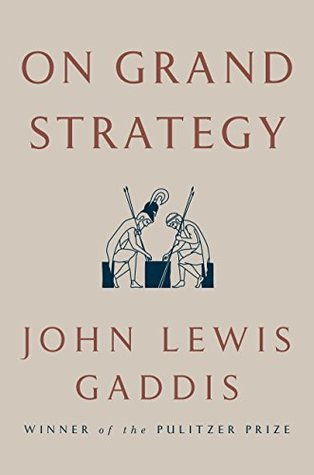More on this book
Community
Kindle Notes & Highlights
the two ways of thinking that Archilochus anticipated, that Berlin would make famous—and that a late twentieth-century feat of social science would still more sharply define.
Note really sure about this it seems like the author is hinting that the hedgehogs is the key to strategy and grand strategy or the title of the book generally. However. Strategy is more of a future oriented framework.
This later proved to be embedded in Gaddis's narrative. However, the confusion shows the problems with burying the lede.
But they tended to be too discursive—too inclined to qualify their claims—to hold an audience. Talk show hosts rarely invited them back. Policy makers found themselves too busy to listen. Tetlock’s hedgehogs, in contrast, shunned self-deprecation and brushed aside criticism. Aggressively deploying big explanations, they displayed a “bristly impatience with those who ‘do not get it.’”
The choices facing us are less often between stark alternatives—good versus evil, for instance—than between good things we can’t have simultaneously.
“You see? Lincoln knows when to be a hedgehog (consulting the compass) and when a fox (skirting the swamp)!” The real Lincoln,
Strategic leadership happens at the top level. Leader must pick compass points to guide their organizations. The Space race example. The point was set, and focused on the goal, many sectors of our society reaped benefits, also so did Florida. The war on poverty is another example.
This works in the negative. Now it seems as though there is a war on kindness and decency. We see the results.
grand strategy is meant to prevent. I’ll define that term, for the purposes of this book, as the alignment of potentially unlimited aspirations with necessarily limited capabilities.
Specifying success was never easy, but the finite nature of means helped.
A gap has opened between the study of history and the construction of theory, both of which are needed if ends are to be aligned with means.
that replaces complexity with simplicity in the pursuit of predictability.
History alone, he argues, is just a long string of stories. That doesn’t mean they’re useless, though, because theory, when conceived of as distillation, keeps you from having to listen to them all again.
distilled past, a planned present, and an uncertain future most explicitly come together.
Since well before Pericles, Athens had been edging toward democracy, which he defined as favoring “the many instead of the few.” By the time he took power, any adult male citizen who wasn’t a slave could speak and vote in the Athenian assembly: with five to six thousand regular attendees, it was the largest deliberative body the world had—or still has—ever seen.19
Experience was useful, but the specializations stratifying other societies were unnecessary. “I doubt if the world can produce a man,” Pericles boasted, who “is equal to so many emergencies, and graced by so happy a versatility as the Athenian.”
Sounds like perhaps New England was as good in terms of strength through diversity of skills. The free man, with the right conditions can truly thrive.
It could in this way project democracy across cultures because insecure states, fearing worse, would freely align with Athens.22 Self-interest would become comfort and then affinity. Transparency, for this reason, was vital:
“Island” strategies require steady nerves. You have to be able to watch smoke rise on horizons you once controlled without losing your own self-confidence, or shaking that of allies, or strengthening that of adversaries. Building walls and proclaiming perimeters can be rational choices, for it makes little sense to pursue lost causes with limited resources. But strategy isn’t always a rational enterprise.
Reassuring withdrawals, Clausewitz writes in On War, “are very rare.” More often armies and nations fail to distinguish orderly disengagements from abject capitulations—or foresight from fear. There will be public concern and resentment at the fate of abandoned areas; the army will possibly lose confidence not only in its leaders but in itself, and never-ending, rear guard actions will only tend to confirm its fears. These consequences of retreat should not be underrated.48
Thucydidean resemblances, I think, suggest an answer. Megara might look like a trifle, Pericles told the Athenians in 432 B.C.E., but if they yielded on that small matter “you will instantly have to meet some greater demand.”
that’s why walls exist in the first place. They buffer what’s important from what’s not.
he rarely confused aspirations with capabilities.
he’d failed, and in one sense he had: he never got to train a successor in the way Julius Caesar had trained him. Had the dying Augustus foreseen his heirs’ abuses, he’d have been horrified: Nero was only forty years into the future.70 But Rome was robust enough, as China has also been, to survive terrifyingly bad rulers.
For the practice of principles must precede their derivation, articulation, and institutionalization. You
The actions of man, Kennan concluded, “are governed not so much by what he intellectually believes as by what he vividly realizes.”1
Man, therefore, must manage unknowns, for God has endowed him—or cursed him—with free will.


